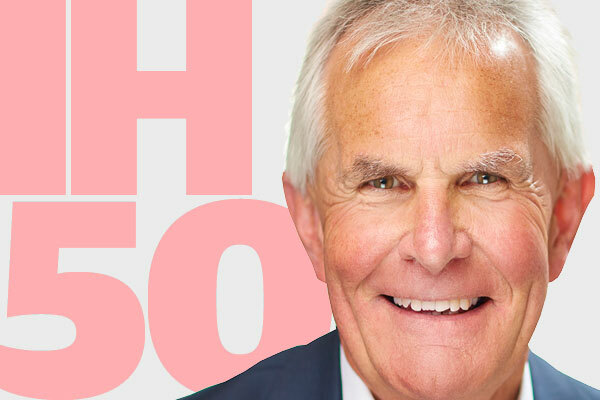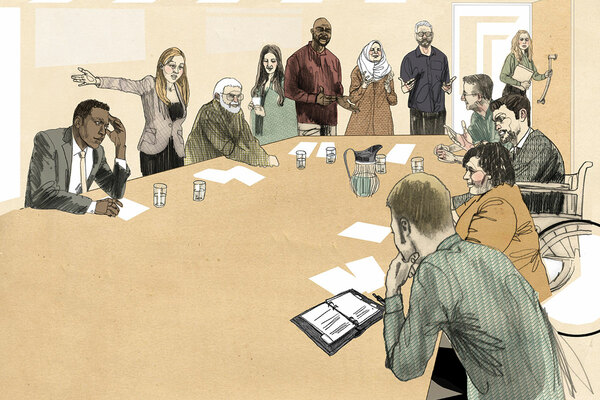You are viewing 1 of your 1 free articles

If we are to overturn centuries of prejudice, reform has to start with listening
My own attitudes changed because of the opportunities for dialogue I had during my police career. Education and discussion are key to tackling racism, and housing providers have a vital role to play, writes Sir Peter Fahy
This week a neighbour I have not had that much to do with stopped me and said that he was fed up with seeing black people protesting on the news.
He said: “Of course, you know that man who died in America was a criminal.” I said it wasn’t him that was the criminal.
I wondered afterwards what was it about me that caused him to think I might agree with his views. Or was it more that this is what he presumed the majority of people are thinking.
I was a police officer for 34 years and like so many serving and former officers, I was appalled at the killing of George Floyd and the seeming nonchalance of the perpetrator US officers.
I was also pained to think that all the many initiatives, training programmes, action plans, inquiry reports and past tragic cases have not brought about the degree of change required in UK policing as well as in many other aspects of life in the UK.
The range of statistics showing the disadvantage and disproportionate adverse outcomes for black people are depressingly well known, but less evident is agreement on the degree of radical and fundamental change needed to overturn decades if not centuries of overt and implicit racism and prejudice.
While there has been much debate about statues, I have not heard much about the practical action required to drive reform.
There does seem to be agreement, however, on the importance of education and understanding as the foundation for changing attitudes and behaviours.
What part can housing providers play? Much more can be done to increase black people’s access to decent housing and provide ways out of economic disadvantage. More can also be done to ensure housing associations have fair employment and development practices which recognise and counter the long-term prejudice black people have faced when getting jobs and board positions.
I would, however, want to dwell on the issue of education and understanding. My own attitudes changed because of the many opportunities I had during my police career to interact with black people, work with them, be challenged by them, develop friendships with some of them and be invited to their homes, cultural events and places of worship.
I also had the chance to work in the US and Africa and understand the way our colonial history and slavery have shaped our attitudes. Many of those affronted by, scared of or angry about Black Lives Matter have not had those opportunities to understand and get behind the stereotype, prejudice and impact of conditioning from childhood.
In my own experience, while action plans, monitoring schemes and training programmes are crucial, the only thing that really changes attitudes, and in turn behaviours, is when you get the chance to sit down with another human being, listen to their life experiences, values and beliefs.
The chance to accept that their perception is reality and to be able to ask questions and challenge those issues which cause suspicion, misunderstanding and prejudice but all in a spirit of respect and without feeling the need to necessarily agree.
To skirt over these issues, to hold celebrations of diversity which leave these elephants in the room or to imply that people are racist just for asking the question, produces superficiality at best or resentment and anger at worst. Extremists feed off this resentment, suspicion and fear.
In Manchester we formed a charity, called We Stand Together, to challenge those extremists who have tried to exploit the murder of Lee Rigby and other terrorist acts to sow division and hatred. One technique we have used is ‘Difficult Dialogues’, where individuals can come together on issues such as the attitudes of religions towards sexuality, Islamic extremism, the divisions caused by Brexit, the wearing of the veil, and whether misogyny is a hate crime.
Yes, these conversations need some management to ensure that all voices are heard and that those present have the confidence to ask questions and don’t feel shut down or restricted by worries of political correctness.
The danger is that the only ones taking part are the usual suspects committed to diversity but groups of staff and groups of tenants are a great place for housing providers to start allowing people to talk about their life experiences and attitudes and perhaps using those issues which can cause division and suspicion as the vehicle to provoke debate.
Of course it is crucial that this leads to action, but reform can only really come from changed understanding and attitudes and in turn only really comes from engagement and the chance to listen to people outside your own bubble and why they might think the way they do.
Public protests are great for showing the degree of anger about an issue but they don’t necessarily create understanding of the human cost in this case of discrimination, lost life choices and opportunities, and create the momentum and agreement behind the degree of radical reform now required.
Sir Peter Fahy, chair, Plus Dane Housing










